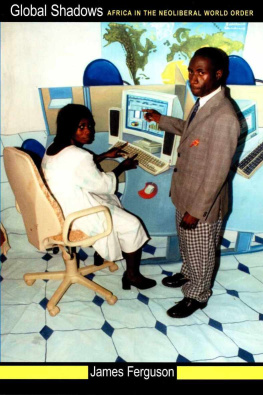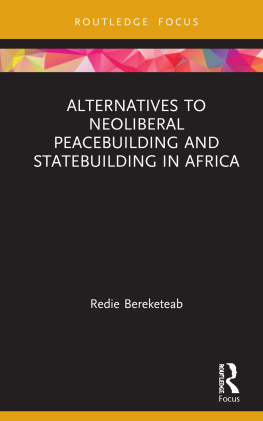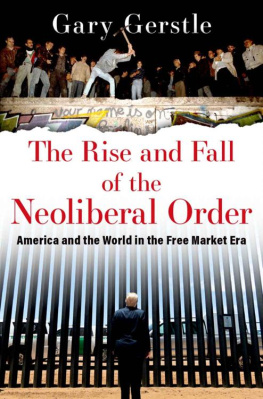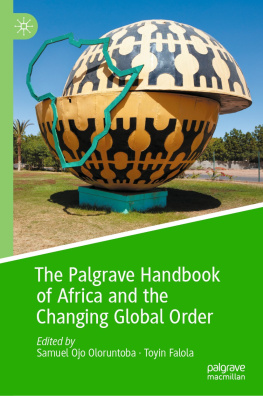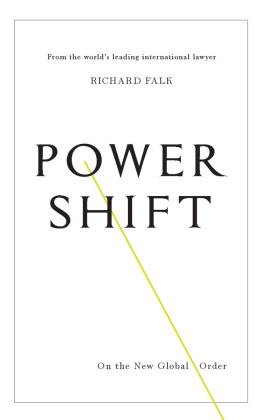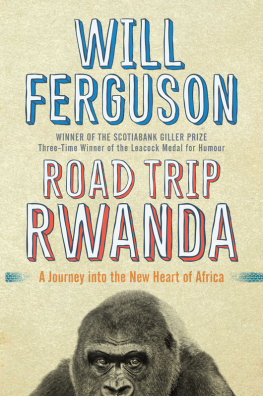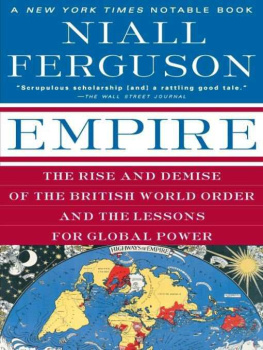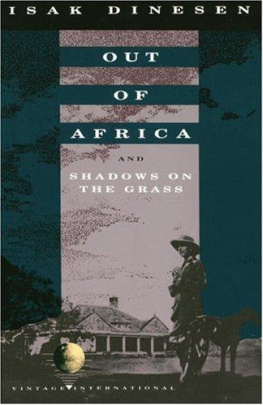James Ferguson - Global Shadows: Africa in the Neoliberal World Order
Here you can read online James Ferguson - Global Shadows: Africa in the Neoliberal World Order full text of the book (entire story) in english for free. Download pdf and epub, get meaning, cover and reviews about this ebook. City: London, Africa, , Durham, Africa, year: 2006, publisher: Duke University Press, genre: Politics. Description of the work, (preface) as well as reviews are available. Best literature library LitArk.com created for fans of good reading and offers a wide selection of genres:
Romance novel
Science fiction
Adventure
Detective
Science
History
Home and family
Prose
Art
Politics
Computer
Non-fiction
Religion
Business
Children
Humor
Choose a favorite category and find really read worthwhile books. Enjoy immersion in the world of imagination, feel the emotions of the characters or learn something new for yourself, make an fascinating discovery.
- Book:Global Shadows: Africa in the Neoliberal World Order
- Author:
- Publisher:Duke University Press
- Genre:
- Year:2006
- City:London, Africa, , Durham, Africa
- Rating:3 / 5
- Favourites:Add to favourites
- Your mark:
- 60
- 1
- 2
- 3
- 4
- 5
Global Shadows: Africa in the Neoliberal World Order: summary, description and annotation
We offer to read an annotation, description, summary or preface (depends on what the author of the book "Global Shadows: Africa in the Neoliberal World Order" wrote himself). If you haven't found the necessary information about the book — write in the comments, we will try to find it.
Global Shadows: Africa in the Neoliberal World Order — read online for free the complete book (whole text) full work
Below is the text of the book, divided by pages. System saving the place of the last page read, allows you to conveniently read the book "Global Shadows: Africa in the Neoliberal World Order" online for free, without having to search again every time where you left off. Put a bookmark, and you can go to the page where you finished reading at any time.
Font size:
Interval:
Bookmark:
DUKE UNIVERSITY PRESSDurham and London2006
3rd printing, 2007
2006 Duke University Press
All rights reserved
Printed in the United States of America on acid-free paper 
Designed by C. H.Westmoreland
Typeset in Galliard by Tseng Information Systems, Inc.
Library of Congress Cataloging-in-Publication Data appear on the last printed page of this book.
The essays in this volume were written at various times over the course of the last decade. They treat a range of subjects, and each can be read on its own, as an independent essay. But they converge on certain broad themes and together amount to a single book-long argument for a certain perspective on anthropology and Africa. I have, for the most part, left the several previously published essays in the form in which they originally appeared, in recognition of the way each responded to a particular set of circumstances in the world and reflected a certain waypoint in the development of my own ideas. I have, however, tried to correct any errors and to update references, where appropriate.
Apart from the introduction and have not appeared previously.
Unusually for an anthropologist, I have not written these chapters about people and places of which I have intimate knowledge through fieldwork. Instead, I have tried to speak about larger issuesconcerning, broadly, Africa and its place in the worldthat can be addressed only by venturing beyond the kinds of knowledge claims that can be firmly grounded in any specific ethno-graphically known case. I believe that there are compelling reasons for attempting this, as I explain in the introduction. But given the strong disciplinary commitment of contemporary anthropology to ethnographic specificity, it is perhaps appropriate to note to the anthropological reader that my experiment here is meant as a way not of discarding (still less of disparaging) ethnography but, rather, of pointing out some directions in which it might turn. Engaging with discussions and projects that are framed at levels of scale and abstraction (Africa, the West, the globe, the world) clearly not amenable to ethnographic study in the traditional sense undoubtedly poses a challenge for ethnographic practice. But it seems to me that this challenge is being met as a new generation of researchers is starting successfully to bring recognizably ethnographic methods of social and cultural conceptualization to bear on projects and processes that are evidently (and often self-consciously) non-local. I am thinking of such examples as (to choose a largely arbitrary handful from a much larger field) Erica Bornsteins study of Christian development agencies in Zimbabwe (2003), Gillian Harts analysis of the movement of transnational capital (in the form of Taiwanese family firms) to South Africa (2002), Annelise Riless ethnographic exploration of global networks of womens organizations (2001), or Anna Tsings account of speculative mining investment in Indonesia (2001)all studies that convincingly link global projects and processes to specific, and ethnographically knowable, social and cultural contexts. In such a rich intellectual environment, there can be no question of turning away from ethnography; rather, the point of the free-ranging, speculative essays that follow is to pose a challenge to established anthropological ways of knowing Africa by identifying certain conceptual (and, in the broadest sense, political) issues that forms of scholarship rooted in a commitment to particularity have up to now too often ignored, avoided, or simply felt unequal to. Given the current (and, it seems to me, extremely vital) state of the field of anthropology at present, there is every reason to be hopeful that such a provocation will be answered with new and innovative forms of ethnographic practice that can push the sorts of questions I have tried to raise in this book in productive and intellectually rewarding directions.
More than anything I have written before, this book has been shaped by the institutional and professional settings within which its chapters took form. Most of the chapters began as seminar papers, presented at conferences, workshops, and invited lectures at dozens of different universities in the United States and elsewhere. It is perhaps too easy to be cynical about the circuit of seminars and colloquia that are so much a part of academic life in the United States. My own experience, at least, is of having been enormously enriched by my encounters with hundreds of serious, thoughtful faculty and student colleagues in such settingscolleagues whose questions, insights, and suggestions played a truly germinal part in forming my ideas, shaping the contours of my arguments, and pushing me toward greater clarity in my writing. I cannot thank all of these colleagues individually, but I am profoundly in their debt.
Much of the work on this book was done while I was a member of the Department of Anthropology at the University of California, Irvine (uci). The Irvine Department provided a wonderfully stimulating and supportive environment for my intellectual development over the years, and I am deeply grateful to my anthropology colleagues (especially Victoria Bernal, Tom Boellstorff, Mike Burton, Teresa Caldeira, Frank Cancian, Leo Chavez, Susan Greenhalgh, Karen Leonard, Bill Maurer, and Mei Zhan), as well as to the members of ucis Critical Theory Institute, and to the many wonderful students I worked with over the years at Irvine. Since 2003, I have enjoyed an equally delightful academic home in the Department of Cultural and Social Anthropology at Stanford University, which provided an environment amazingly rich in both intellectual excitement and warm collegiality for the final round of work on the book. Portions of the book were also written during a fellowship year (200001) at the Center for Advanced Study in the Behavioral Sciences, whose support is gratefully acknowledged. Conversations with other fellows at the centerespecially Ute Frevert, Tom Haskell, David Holloway, Jean Lave, Steve Lansing, David Nirenberg, and Mary Louise Prattwere a source of pleasure and stimulation as I worked on the book that year.
Several colleagues have helped me by providing answers to specific questions and queries; in particular, I thank Tony Simpson for his help with .
Many other people have read chapters or sections of the manuscript, and I am grateful to all of them. Especially helpful readings, with very useful suggestions for improvement, came from Homi Bhabha, Tom Boellstorff, Teresa Caldeira, John Comaroff, Peter Geschiere, Jeremy Gould, Sean Hanretta, Ian Hodder, Bill Maurer, Charlie Piot, Richard Roberts, and Blair Rutherford. I also owe a special debt to the students in my 2004 course The Anthropology of Neoliberalism at Stanford, who read several of the essays and helped me to sharpen and clarify my arguments. Akhil Gupta has read or heard many of the chapters of the book, at various stages of preparation, and my thinking in many areas (most of all, the argument in , Transnational Topographies of Power) has been powerfully shaped by discussions with him. I have benefited enormously from our shared intellectual exchanges, work in common, and friendship over the years.
Finally, as always, my greatest intellectual debt is to Liisa Malkki. Her insights and suggestions inform every chapter, and the creativity, originality, and courage of her thought have been a continuing inspiration to me.
Global Shadows
AFRICA AND THE WORLD
What kind of place is Africa? The question, on the face of it, is an improbable one. Africa is a huge continent, covering one fifth of the worlds land surface, where over 800 million people live an extraordinary variety of lives. Is there any meaningful sense in which we can speak of this as a place? Looking at the range of empirical differences internal to the continentdifferent natural environments, historical experiences, religious traditions, forms of government, languages, livelihoods, and so onthe unity of a thing called Africa, its status as a single place, however the continental descriptor may be qualified geographically or racially (Sub-Saharan, black, tropical, or what have you) seems dubious. Certainly, one may reasonably doubt whether national situations as different as, say, those of Botswana and Liberia are greatly illuminated by treating them as two examples of a generic Africanness, just as one is entitled to question the extent to which, say, Somalia and Namibia partake in a civilizational sameness. Indeed, it has often been suggested that the very category of Sub-Saharan Africa, with its conventional separation from a Middle East that would include North Africa, is as much a product of modern race thinking as it is an obvious cultural or historical unity.
Font size:
Interval:
Bookmark:
Similar books «Global Shadows: Africa in the Neoliberal World Order»
Look at similar books to Global Shadows: Africa in the Neoliberal World Order. We have selected literature similar in name and meaning in the hope of providing readers with more options to find new, interesting, not yet read works.
Discussion, reviews of the book Global Shadows: Africa in the Neoliberal World Order and just readers' own opinions. Leave your comments, write what you think about the work, its meaning or the main characters. Specify what exactly you liked and what you didn't like, and why you think so.

